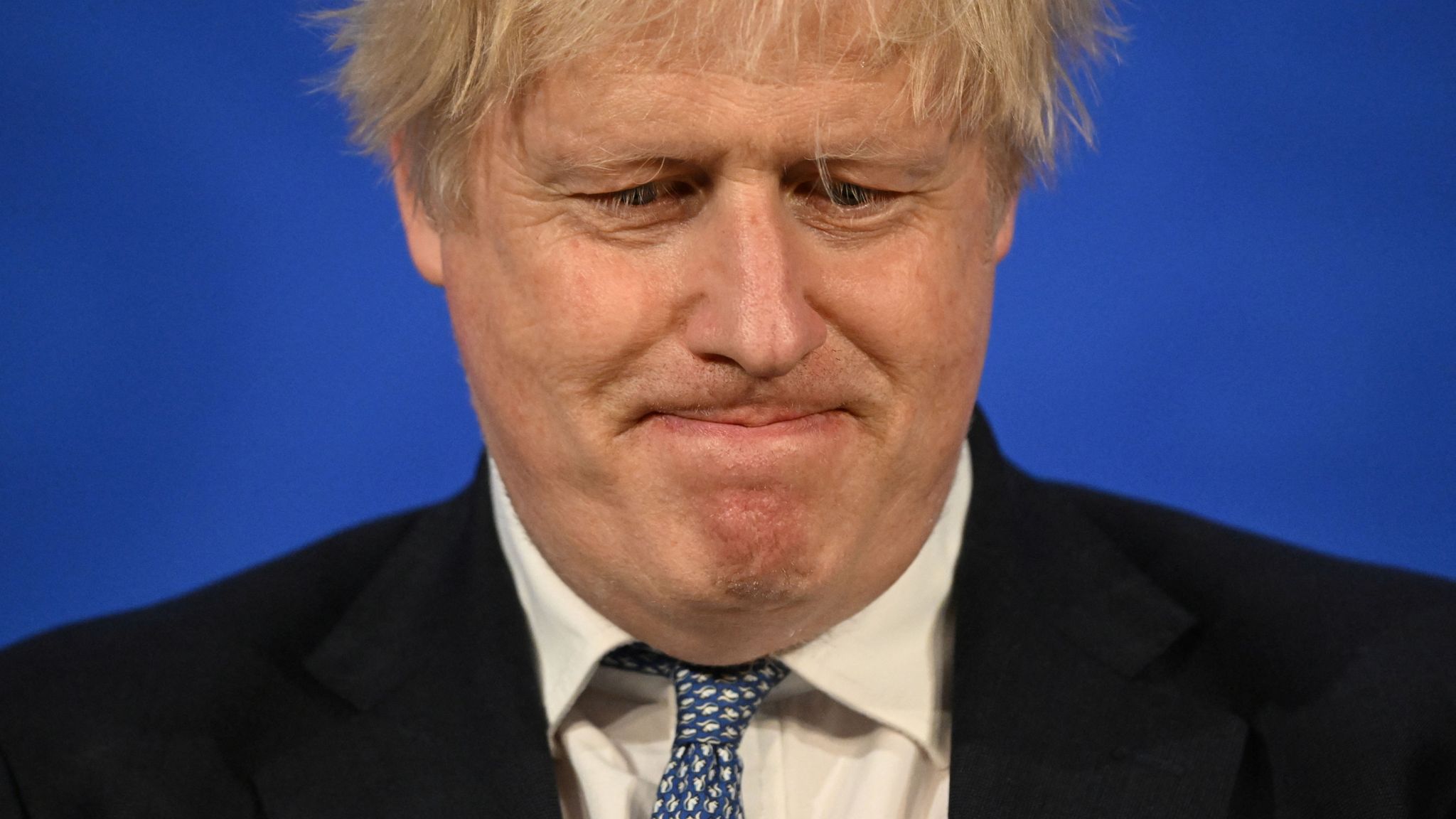Boris Johnson and allies launch legal fightback against 'witch-hunt' over partygate
The government has commissioned legal advice from a top QC, Lord Pannick, which the PM's supporters claim undermines the legitimacy of the inquiry.

Boris Johnson and his allies have launched a legal fightback against a Commons inquiry into claims he lied to parliament about partygate.
The government has commissioned legal advice from a top QC, Lord Pannick, which the PM's supporters claim undermines the legitimacy of the inquiry.
Lord Pannick is a crossbench peer who has previously acted against the government for anti-Brexit campaigner Gina Miller and Shamima Begum over the removal of her British citizenship.
The inquiry into Mr Johnson, by the all-party Privileges Committee, has been denounced as "a witch-hunt" and "a kangaroo court" by his allies after the committee announced it could rule against him even if he did not deliberately mislead MPs.
As a result, Downing Street and the Cabinet Office called in Lord Pannick for a legal opinion, claiming the inquiry by the all-party committee could damage the functioning of government.
Supporters of the PM are now claiming Lord Pannick's advice should mean the end of the probe.
'Biased and chilling'
Culture Secretary Nadine Dorries told the Daily Mail: "This expert legal opinion shows that the inquiry was a biased, Kafkaesque witch-hunt - it should now be halted before it does any more damage.
"As a minister, you simply cannot verify every single piece of trusted advice and information you are given in good faith by well-intentioned and conscientious senior officials.
"What this potentially does is set a trap for every minister in the future, and it's a chilling prospect for the future of our democracy."
As Mr Johnson refuses to rule out plotting a political comeback, the stakes could not be higher for him. If he is found to be in contempt of parliament, he could be suspended or even kicked out of the Commons after a recall petition.
But ahead of the imminent publication of Lord Pannick's legal opinion, government sources are reported to be claiming it will be "absolutely devastating" for the committee's investigation.
'Paralyse democracy'
Tory leadership frontrunner Liz Truss signalled during party hustings she would like to scrap the inquiry. But that would engulf her in a cover-up and cronyism row similar to that over Owen Paterson, which badly damaged Mr Johnson.
Government sources approached by Sky News declined to comment on multiple reports about Lord Pannick's legal advice, but there was no attempt to deny their veracity either.
"This isn't for Boris, but for all future PMs and MPs," a source told The Daily Telegraph. "Ministers will never be able to say anything if they think they can be found in contempt by accidentally giving the wrong answer."
It is also claimed by Mr Johnson's supporters that the legal advice will show that investigating ministers for misleading the House "in good faith" would create a chilling effect and would "paralyse democracy".
The committee is poised to examine whether Mr Johnson misled the Commons when he claimed "all guidance was followed in No 10" and there was "no party" breaking lockdown rules.
There is fury among MPs loyal to Mr Johnson over the appointment of the Labour grandee Harriet Harman to chair the committee, because of her previous criticism of the PM over partygate.
She took over the chairmanship after another senior Labour MP, Chris Bryant, stood down because he had been a vocal and persistent critic of the PM over the accounts he gave to parliament.
Cabinet Office sources told The Daily Telegraph the advice was commissioned by the newly created Office of the Prime Minister, which is based in their department but reports to Downing Street. They suggested the advice will be published by No 10 rather than the Cabinet Office.
What do the rules say?
It had initially been assumed MPs on the Privileges Committee would have to prove Mr Johnson had "deliberately misled" the House of Commons over the extent of parties in Downing Street during the lockdowns.
This was based on parliament's ancient rulebook, Erskine May, which states that "the making of a deliberately misleading statement [is seen] as a contempt".
But when the committee published its motion in June, it only referred to whether Mr Johnson had "misled the House", lowering the burden of proof.
The committee is made up of seven MPs - four Tories, two Labour and one from the SNP - and has called for evidence of "Mr Johnson's knowledge of the activities in 10 Downing Street and the Cabinet Office under COVID-19 regulations, from the occurrence of those events until now", as well as "any briefing given to, or inquiries made by, Mr Johnson relating to those events".
The committee also said it would be "willing to take oral or written evidence from people who wish to remain anonymous", a move which has incensed Mr Johnson's allies on the Tory benches.


